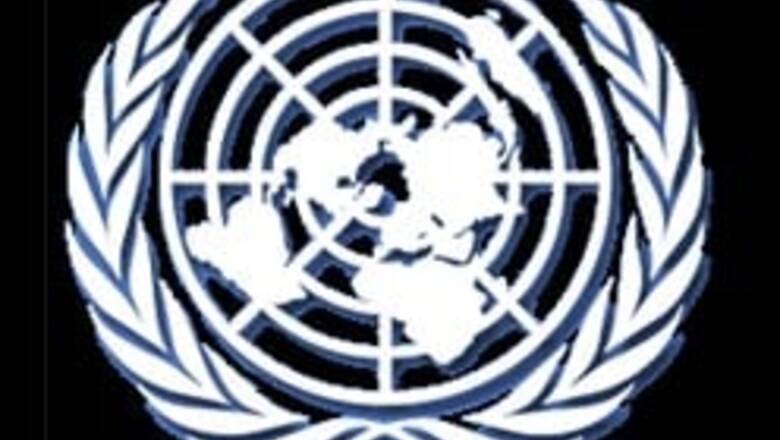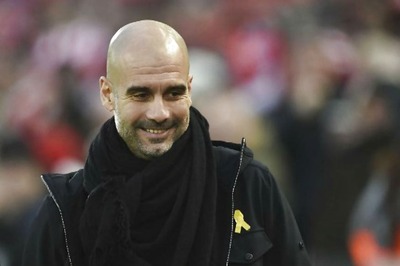
views
United Nations: The cricketers will not just be batting and bowling in the World Cup that opens in the West Indies on Sunday. They will be a part of the UN campaign against HIV/AIDS.
The International Cricket Council is teaming up with the Joint UN Programme on HIV/AIDS (UNAIDS), the UN Children's Fund (UNICEF) and the Caribbean Broadcast Media Partnership.
The campaign will focus on issues facing children and young people affected by the dreaded disease and the resources as well as actions needed to address them.
It is also the latest collaboration between the United Nations and world sports bodies, to produce a series of public service announcements (PSAs) and other
events during the seven-week Cup, which is expected to draw more than two billion TV viewers.
The public, especially young people aged 15-24, will get information on the stigma and discrimination around HIV and on how to protect themselves against the virus.
''Young people today have never known a world without AIDS,'' UNAIDS executive director Peter Piot said on Tuesday.
''Sports stars such as top cricket players can act as role models for today's young
generation and reach out to them on AIDS issues. Sport is a force for change that can break down barriers, build self-esteem and teach life skills and social behaviour,” he added.
He further added that by highlighting AIDS issues, the Cricket World Cup and its stars ''are showing exactly the kind of exceptional response needed for the exceptional challenge of AIDS.''
Through high profile activities around cricket's biggest event, the Council is supporting the Unite for Children, Unite against AIDS campaign launched in 2005 by UNICEF, UNAIDS and other partners.
The campaign is focused on ensuring antiretroviral treatment for HIV-positive
children, preventing mother-to-child transmission, promoting education programmes to help prevent HIV transmission, and aiding children who have been orphaned by AIDS.
''Children have been the missing face of the AIDS pandemic,'' UNICEF executive director Ann M Veneman said.
''The International Cricket Council will be a powerful ally in ensuring that children are at the heart of the global response to the epidemic,” she added.
The PSAs, each lasting 30 seconds, will be available to broadcasters free of charge. They feature leading players, including Ricky Ponting from Australia and Rahul Dravid from India, speaking about how HIV affects children.
PAGE_BREAK
Players and officials from each team will wear the red and blue ribbon of the Unite for Children, Unite against AIDS campaign during their first games and during the final on April 28. Players will also visit programmes supporting children and young people affected by HIV.
''We hope the range of activities delivered at the ICC Cricket World Cup 2007 will make a difference to raising awareness and reducing stigma around HIV in the Caribbean and across the ever-growing cricket world,'' ICC President Percy Sonn said, according to a statement made available at UN headquarters in New
York.
''By encouraging high profile players to support this campaign, we hope to be able to engage those who may otherwise be difficult to reach,” he added.
Cricket is popular in many of the countries most affected by AIDS, including India and South Africa.
Together, these two countries are home to around 11 million of the 40 million people estimated to be living with HIV.
In the Caribbean, where the Cup is being held, UNAIDS estimated that 250,000 people were living with HIV in 2006, 15,000 of them children aged 0-14 years.
The ICC is being supported in the effort by the Caribbean Broadcast Media Partnership on HIV/AIDS, a coalition of over 50 broadcasters in 23 Caribbean countries and territories.
''The exceptional reach of broadcast media in the Caribbean gives us a unique opportunity to educate audiences about how to avoid HIV, and how to combat the stigma and discrimination that surround the disease,'' Partnership's Steering Committee head Allyson Leacock said, according to the same statement.
The campaign is but the latest in a whole series of collaboration between UN agencies and world sport, which has seen the likes of football legends including Ronaldo and Zinédine Zidane shooting against poverty, the European Swimming League in 'a race against time' to prevent deaths from unclean water, and similar initiatives with the International Rugby Board, American football stars, marathon runners and Formula One auto racers.



















Comments
0 comment